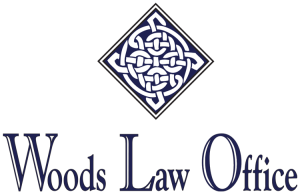Many parents name their children after themselves as a way to honor family tradition. However, having the same name as a child can lead to serious legal and financial risks, including fraud and inheritance disputes. Attorneys frequently see issues arise when a child with the same name misuses their parent’s identity to access financial accounts, property, or credit. Likewise, parents may also take advantage of the shared name to commit fraud against their children, leading to financial and legal complications.
Common Fraud Risks When a Child Shares a Name with a Parent
- Property Deed Fraud – A child with the same name as their parent may fraudulently transfer real estate by forging their parent’s signature on a deed. Because names match, notaries or title companies may not catch the deception, leading to unauthorized property sales or transfers.
- Credit Card and Loan Fraud – A child may open credit cards or take out loans in their parent’s name, using the shared name to pass basic identity checks. If the fraud goes undetected, the parent may face damaged credit and unexpected debt.
- Unauthorized Access to Financial Accounts – Banks and other financial institutions often verify identity based on name recognition. A child with the same name may use this loophole to gain access to a parent’s bank accounts, particularly if they live at the same address or have inside knowledge of account details.
- Misuse of Legal Documents – Wills, trusts, powers of attorney, and other legal documents can be altered or forged by a child impersonating their parent. This can lead to the unauthorized control of assets, disputes among heirs, and costly litigation to unravel the fraud.
- Parents Committing Fraud Against Their Children – In some cases, parents may misuse their child’s identity by opening credit accounts, taking out loans, or even transferring assets in the child’s name without consent. Since the parent often has access to critical identity information such as Social Security numbers and birth certificates, this type of fraud can be difficult to detect and correct.
Real-World Consequences
The legal and financial fallout from such fraud can be devastating. Victims often spend years fighting to correct fraudulent property transfers, clear unauthorized debt, or reclaim assets wrongfully taken. In many cases, law enforcement and courts require clear proof of fraud, which can be difficult to establish when names are identical.
How to Protect Yourself
If you share a name with your child, consider taking proactive legal steps to prevent fraud:
- Use Full Legal Names with Suffixes – Always use full legal names, including suffixes like Sr., Jr., or III, in all financial and legal documents to distinguish identities.
- Monitor Credit Reports Regularly – Checking credit reports frequently can help detect unauthorized accounts or inquiries.
- Require Dual Signatures on Major Transactions – For property transfers or large financial transactions, requiring two-party authorization can help prevent fraud.
- Use a Revocable Living Trust – Instead of adding a child’s name to property deeds or financial accounts, a trust can ensure proper asset distribution while preventing unauthorized access.
- Secure Legal Documents – Keep wills, trusts, powers of attorney, and property deeds in a secure location, such as a safe deposit box or with an attorney, to prevent unauthorized alterations.
- Educate Family Members on Identity Theft Risks – Awareness and open discussions about potential fraud risks within the family can serve as a preventive measure.
Final Thoughts
While naming a child after a parent is a cherished tradition, it can lead to significant legal and financial risks. Families should be aware of the potential for fraud from both children and parents and take preventive measures to protect their assets and identity. If you have concerns about potential misuse of your name, consult with an experienced estate planning attorney to safeguard your financial and legal interests.


